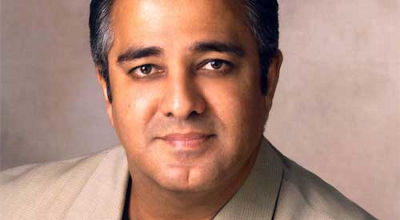Are There Warning Signs Your Pastor Is Falling?
I’ve known Sam Hinn since he was 18 years old. The younger brother of evangelist Benny Hinn, Sam started a church in my office building years later, and for more than 12 years he was my pastor. So the report that he’s fallen as a leader because of a moral failure is very personal to me.
When my family left Sam’s church, The Gathering Place (TGP), four years ago, we told him our season there had ended—and it had. But we knew things there weren’t healthy; we just weren’t privy to the details.
I want to see Sam restored and I believe he will be—but it won’t be overnight. Any pastor who had a four-year affair and denied it until days before he was forced to resign isn’t in a good place spiritually. In Sam’s case, I saw warning signs years prior. Sadly, I see the same ones in many independent charismatic churches today.
The last thing I want to do is throw stones, as the Bible says to take heed lest we also fall (1 Cor. 10:12). With that in mind, here are three principles any church or leader must apply to help prevent similar tragedies.
1) The church is not about the pastor. In churches founded by a strong leader, often it is, and at TGP, things gradually became “all about Sam.” Another pastor I had years ago liked to quote the Scripture about elders who teach being worthy of double honorarium (1 Tim. 5:17). He meant he should get double pay, yet he ignored the verse warning leaders of the consequences if they make even one person stumble (Mark 9:42). That pastor also fell, and the ramifications linger nearly three decades later; the church he led is now a shadow of what it was.
2) The church must operate with full disclosure. This includes how decisions are made and how money is spent. In 12 years at TGP I recall only one business meeting, and it was before a fundraising drive. Insiders knew what was happening; the rest of the congregation was expected to trust the leaders—though most in the church didn’t even know who was on the board. Secrecy usually means something is wrong. Why else keep it a secret?
3) The church needs systems of accountability. Our church wasn’t part of a network, and Sam had no spiritual oversight other than his own hand-picked board. Ironically, these board members were the ones who discovered his affair, forced Sam to step down and reached out to a respected pastor of a nearby Assemblies of God church to help oversee the restoration process. But what else was happening in the church and for how long?
After Ted Haggard fell a few years ago, Dr. Doug Weiss, a specialist in dealing with sex addiction, created a plan in which churches ask potential hires upfront about any struggles with pornography, masturbation and infidelity. Those churches would also require key pastors to take polygraph tests verifying their sexual purity. “A church on the offense protects its congregation from sexually impure leadership,” he writes in his upcoming book, Clean.
Sam was a passionate preacher who loved to give big bear hugs. But he obviously had a darker side, and those overseeing his restoration process must help him to deal with the things that led him to such an unhealthy place.
They must also make the tough decision about how and when Sam is ready to return to ministry. I believe God can restore anyone, but that doesn’t mean that person should get his or her job back. I believe pastors who fall like this and walk through the restoration process are best off starting over elsewhere. Sam is very gifted and he can build another ministry free of the shame that now surrounds him and TGP in our city.
We love Sam and his family. I respect the church board for calling on a respected leader to help TGP heal and for Sam to be restored. I’ve been horrified at the growing trend of charismatic pastors who go through scandal, stay in their pulpit and go on as if nothing ever happened.
But Sam’s not the first to fall, nor will he be last. So we must learn from this tragedy. Churches must establish accountability systems for leaders so they don’t become a cult-like environment where a leader can easily give in to temptation or get off track and wreak havoc on many lives.
Often leaders who are unaccountable have it set up so they can’t be removed. That’s unhealthy, and in such cases there’s not much a congregant can do but move on—as many, including my family, did. But great leaders will take the wiser path of being vulnerable and, with the fear of God, create environments that are healthy for their churches, as well as for themselves—before it’s too late.
Steve Strang is the founder and publisher of Charisma. Follow him on Twitter //www.twitter.com/@sstrang” target=”_blank”>@sstrang or Facebook (stephenestrang).














































